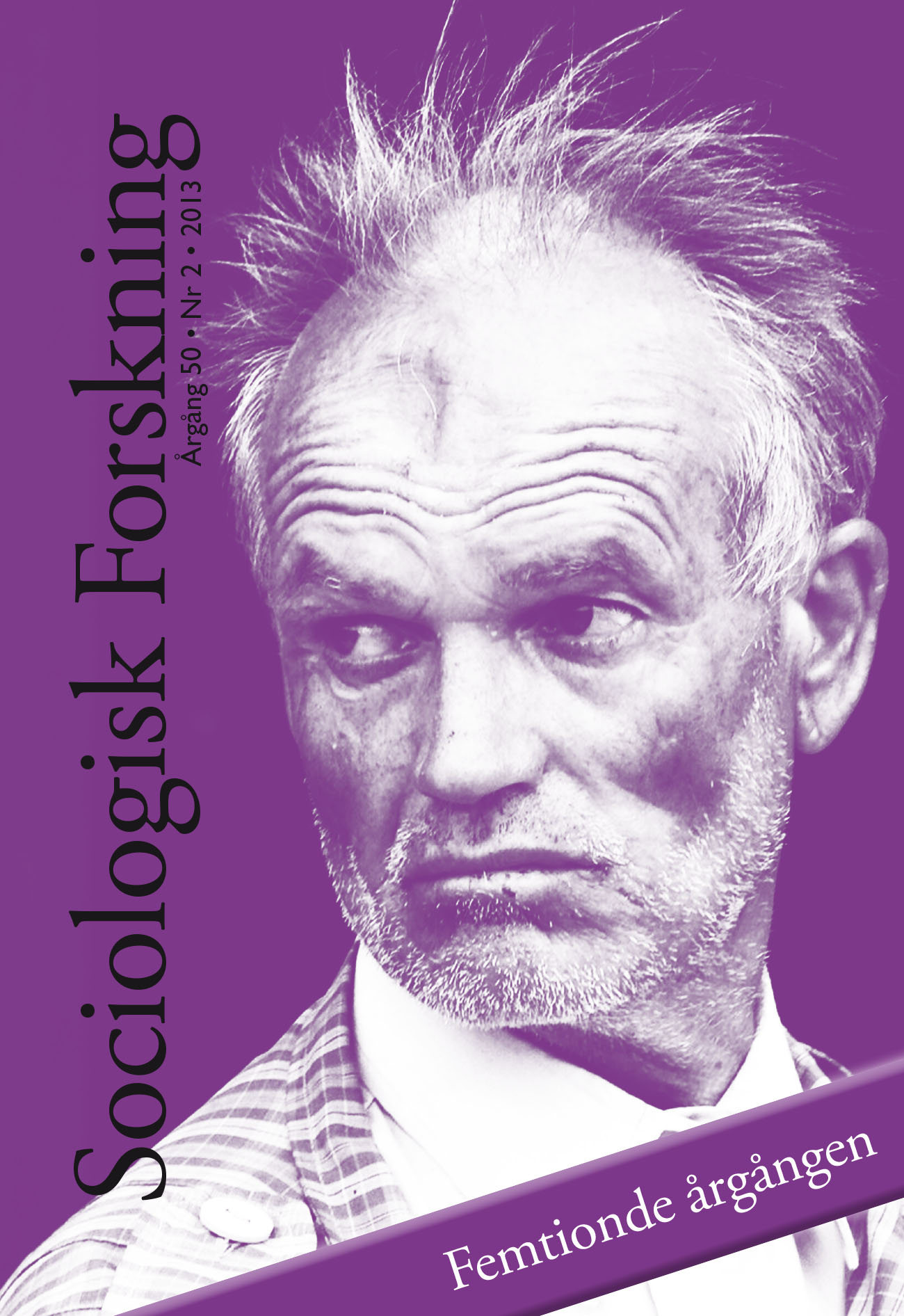En sociologisk förståelse av förlåtelse och försoning
DOI:
https://doi.org/10.37062/sf.50.18375Nyckelord:
forgiveness, reconciliation, shame and guilt, victim, perpetrator and actor.Abstract
Forgiveness and reconciliation in a sociological context
Are forgiveness and reconciliation left to the theologians to define or can these concepts also be genuine concepts in sociology? In spite of the fact that sociology and social psychology have a lot of research about relationship, interaction and groups, there is not much research about forgiveness and reconciliation. This article presents the understanding of how relations can be revived, if once broken, if using these conceptions. The discussion also includes the concepts of shame and guilt and even confidence, particularly in relations where you find victim and perpetrator. The discussion is developed in a perspective of symbolic interactionism with examples from sociological research about men´s violence against women and adults, especially fathers, abuse to their daughters. In this article the perpetrator feels guilt and the victim shame and the feeling of guilt makes the perpetrator to ask for forgiveness. When hate and hard feelings have come to an end, the reconciliation can occur as a consequence of the forgiveness.
Downloads
Publicerad
Referera så här
Nummer
Sektion
Licens
Allt material i Sociologisk Forskning publiceras med omedelbar öppen tillgång (open access), under Creative Commons-licensen CC BY-NC-ND 4.0.
Allt innehåll i tidskriften är fritt tillgängligt utan kostnad och får för icke-kommersiella syften fritt läsas, laddas ned, kopieras, delas, skrivas ut och länkas. Innehållet får dock inte ändras. När innehållet används måste författare och källa anges. Upphovsrätten till innehållet tillhör respektive författare. Inga publiceringsavgifter tas ut.





